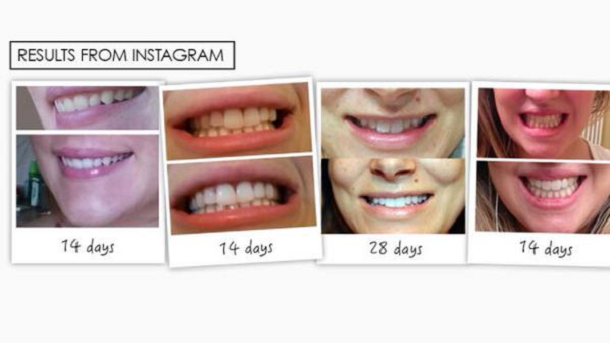Teeth whitening ads branded misleading after claims ‘not sufficiently’ proved

A website and Instagram post was brought to the attention of the Advertising Standards Authority (ASA) by two complainants who challenged whether the claims that the product could whiten teeth were misleading and could be substantiated.
Following these complaints and a request for substantiation which did not satisfy the advertising regulation body, the ASA told CocoWhite Ltd not to state or imply that its products could whiten teeth unless it held robust, documentary evidence to substantiate the claims.
Whitening trend
CocoWhite products originated on the back of a practice called oil pulling which involves swishing oil around the mouth to remove bacteria.
On its website, CocoWhite claims that the oil is a ‘100% natural alternative to the chemical fuelled teeth whitening craze’, claiming it helps with ‘Brighter, whiter teeth’, and also features a series of Instagram images depicting sets of teeth before and after 14 or 28 days of use.
The ASA considered that the statements in the ads would be understood by consumers as objective claims that the product could whiten teeth, and that this would also be implied by the before and after images on the site.
Therefore, CocoWhite were expected to hold ‘robust’ substantiation in support of these whitening statements.
Trial data
The UK-based firm provided details of a trial conducted in May 2015, in which 102 participants, who used the product as instructed for two weeks, gave feedback on their perception of the whiteness of their teeth after use, as well as other aspects of the product such as taste and price.
CocoWhite noted that 55.88% of participants agreed or strongly agreed that they felt the product had made their teeth whiter.
The problem with this was that the trial provided by CocoWhite post-dated the ads seen by the complainants and was therefore ruled as insufficient to support the claims as they appeared at that time.
The ASA also noted that the trial performed was a consumer perception test and that the conclusions were based on agreement with the phrase "I feel the product has made my teeth whiter", which it says is not adequate support for an objective claim that the product whitens teeth.
Finally, because no ‘qualified, blinded and objective’ evaluation had been undertaken with regard to the whiteness of the participants' teeth before and after the treatment, the ASA considers that, “even had the trial been conducted before the claims in the ads were made, it would have been insufficiently robust to support them.”
Oil pulling trend
Oil pulling is a ritual that began thousands of years ago and has become a growing trend after many celebrities, such as Gwyneth Paltrow, have spoken of how they use it to help maintain oral hygiene along with their daily dental routine.
Despite the issue over its advertising, CocoWhite has also been endorsed by a number of people on social media, more than happy to post their own results having used this, or another similar product.








